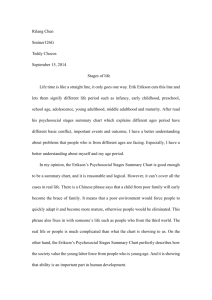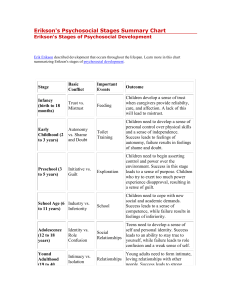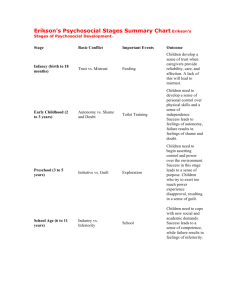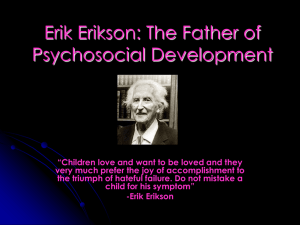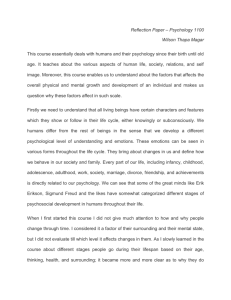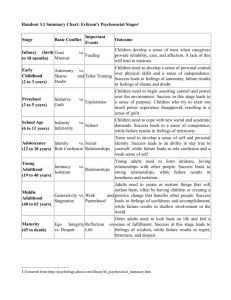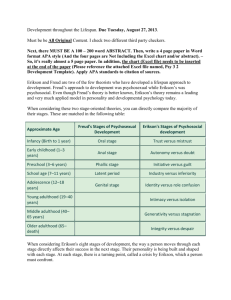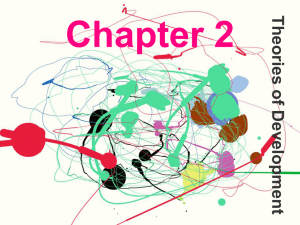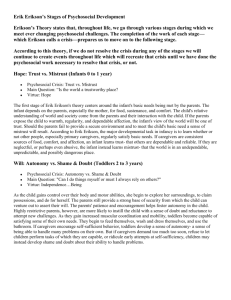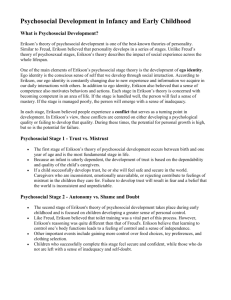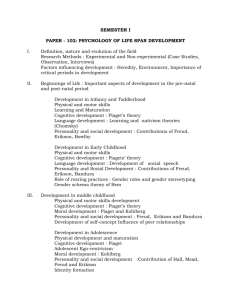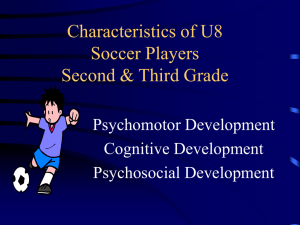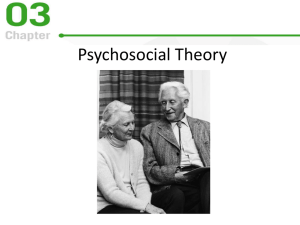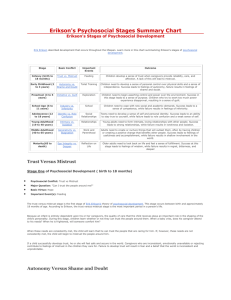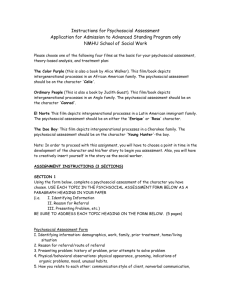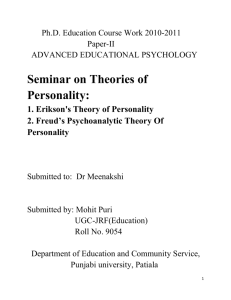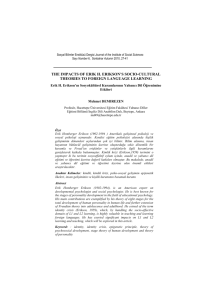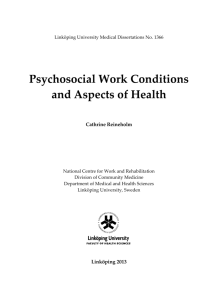Social Development Lecture
advertisement
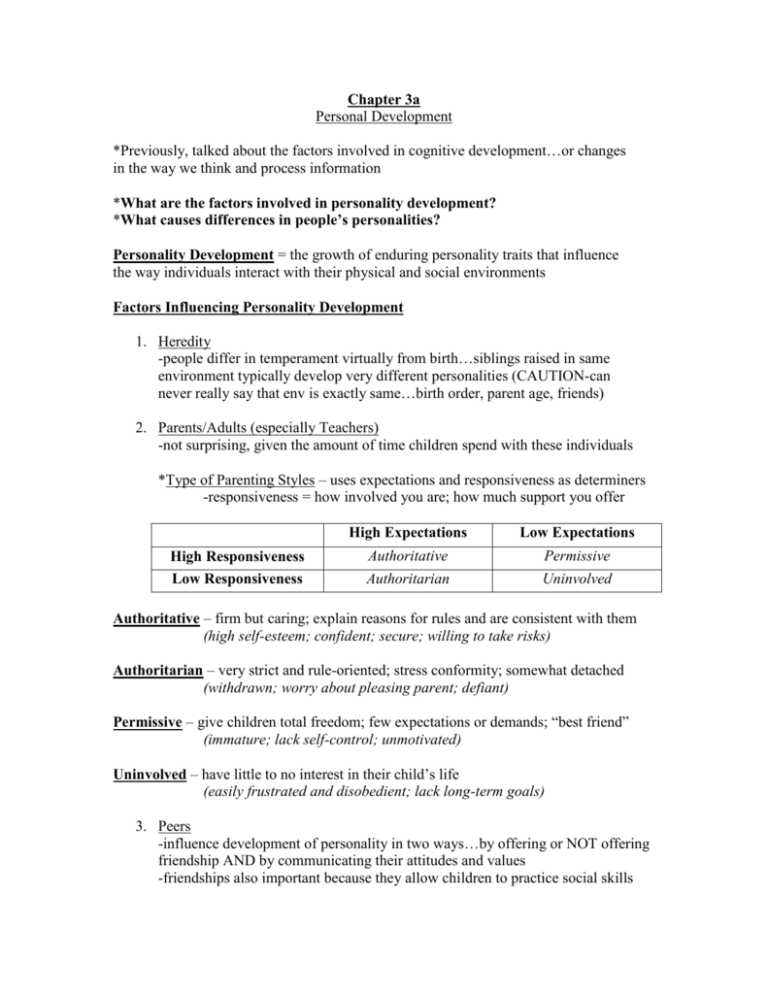
Chapter 3a Personal Development *Previously, talked about the factors involved in cognitive development…or changes in the way we think and process information *What are the factors involved in personality development? *What causes differences in people’s personalities? Personality Development = the growth of enduring personality traits that influence the way individuals interact with their physical and social environments Factors Influencing Personality Development 1. Heredity -people differ in temperament virtually from birth…siblings raised in same environment typically develop very different personalities (CAUTION-can never really say that env is exactly same…birth order, parent age, friends) 2. Parents/Adults (especially Teachers) -not surprising, given the amount of time children spend with these individuals *Type of Parenting Styles – uses expectations and responsiveness as determiners -responsiveness = how involved you are; how much support you offer High Responsiveness Low Responsiveness High Expectations Low Expectations Authoritative Authoritarian Permissive Uninvolved Authoritative – firm but caring; explain reasons for rules and are consistent with them (high self-esteem; confident; secure; willing to take risks) Authoritarian – very strict and rule-oriented; stress conformity; somewhat detached (withdrawn; worry about pleasing parent; defiant) Permissive – give children total freedom; few expectations or demands; “best friend” (immature; lack self-control; unmotivated) Uninvolved – have little to no interest in their child’s life (easily frustrated and disobedient; lack long-term goals) 3. Peers -influence development of personality in two ways…by offering or NOT offering friendship AND by communicating their attitudes and values -friendships also important because they allow children to practice social skills Chapter 3b Erikson’s Psychosocial Stages Erikson -was interested in all of the factors that influence development -personal -emotional *integrated all of these factors into his theory → -social why it’s called a psychosocial theory of development -believed all people have the same basic needs and that development occurs in stages -each stage (8 total) is characterized by a crisis (a psychosocial challenge that presents opportunities for development)…each crisis represents struggle to get need met) Stages of Psychosocial Development 1. 2. 3. 4. 5. 6. 7. 8. Trust vs. Mistrust (Birth to 1 Year) – receiving consistent, loving care Autonomy vs. Shame/Doubt (Ages 1 to 3) – independence Initiative vs. Guilt (Ages 3 to 6) – willing to take chances/risks Industry vs. Inferiority (Ages 6 to 12) – sense of competence in abilities Identity vs. Role Confusion (Ages 12 to 18) – confidence in “who they are” Intimacy vs. Isolation (Young Adulthood) – ability to develop meaningful rels Generativity vs. Stagnation (Middle Adulthood) – desire to give back, make diff Integrity vs. Despair (Late Adulthood/Old Age) – have few regrets about life *furthermore, any damage you did at a particular stage was NOT irrevocable…he believed you could go back and tackle your issue at that stage to resolve the crisis Research Support for Theory *Study conducted in 1992, which looked at the possible connection between childhood injuries and Erikson’s psychosocial stages of development…found that injuries seemed to match up with particular stage the child would be going through at that age 1. Trust vs. Mistrust → drowning was most common → dependent on caregivers 2. Autonomy vs. Shame/Doubt → falling down while exploring environment Criticism of Erikson’s Theory 1. failed to adequately address importance of culture in psychosocial development Example: Asian cultures tend to be collectivist → influence dev. of autonomy (more interested in cohesiveness of group vs. the individual) 2. theory was based on his work with men…possibly not as applicable to women Example: proponents of Feminist Development Theory believe his theory is representative of a male, egocentric perspective on development…stress idea that connectedness plays a much bigger role in female development vs. autonomy
